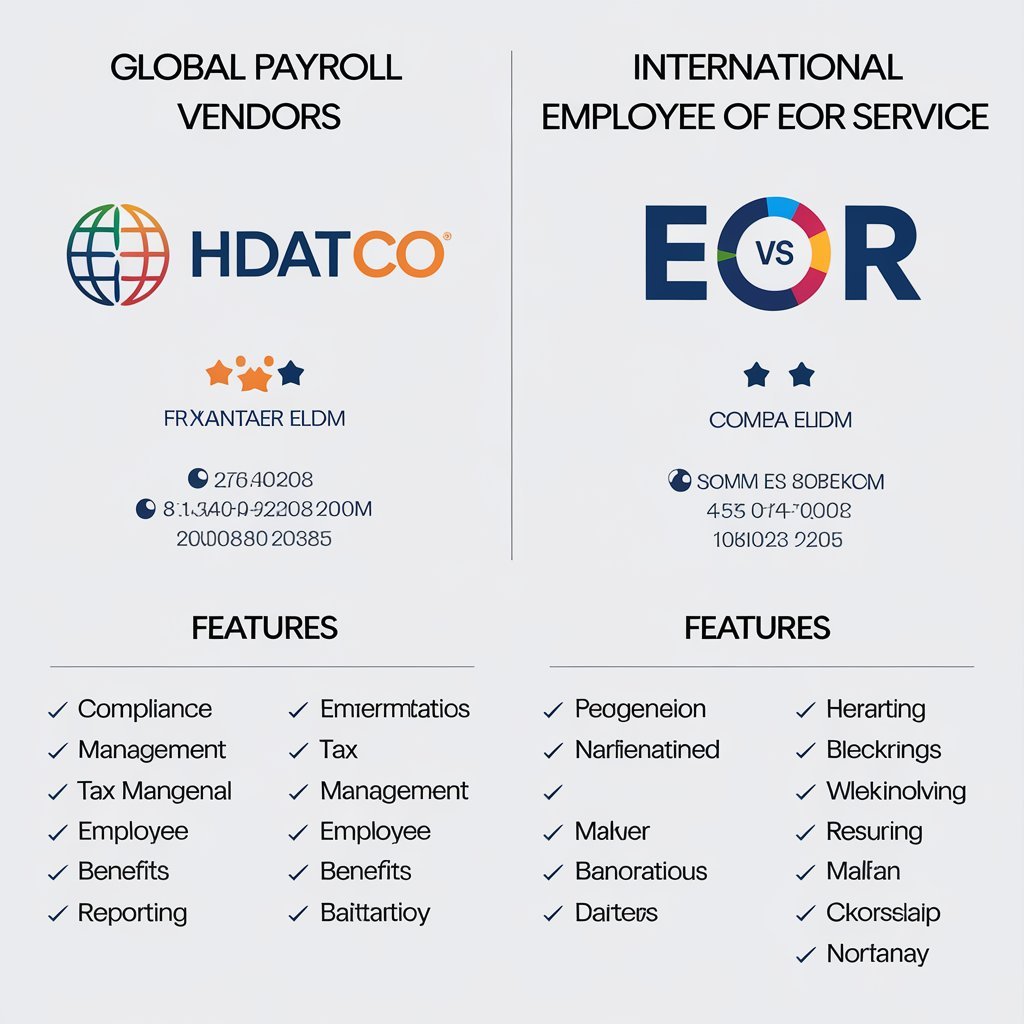Understanding International EOR (Employer of Record)
Definition and Key Concepts
An International Employer of Record (EOR) is a service provider that officially employs workers on behalf of another company. This arrangement allows businesses to hire employees in foreign countries without having to set up a legal entity there. The EOR manages all the local employment responsibilities, including payroll, taxes, benefits, and compliance with labor laws. While the EOR handles the administrative tasks, the client company retains control over the day-to-day activities and performance of the employees.
Benefits and Limitations
One of the primary benefits of using an EOR is the ease of market entry. By leveraging the services of an EOR, businesses can quickly expand into new countries without the need to navigate the often cumbersome process of establishing a legal entity. This speed to market can be a significant competitive advantage, allowing companies to capitalize on new opportunities without delay.
Moreover, EORs mitigate the risk associated with global employment. They take on the legal responsibility for compliance with local labor laws, reducing the risk of penalties and legal issues for the client company. This risk mitigation is particularly valuable in countries with complex and stringent labor regulations.
However, there are limitations to using an EOR. One significant limitation is the potential lack of control over the employment relationship. While the client company directs the day-to-day activities of the employees, the EOR is the official employer, which can sometimes lead to misalignment of expectations and priorities. Additionally, using an EOR can be more costly in the long term compared to setting up a local entity, especially as the number of employees in a particular country grows.
Main Service Providers
Several prominent service providers offer EOR services on a global scale. Companies such as Globalization Partners, Remote, and Safeguard Global are well-known in this space. Globalization Partners, for example, provides EOR services in over 187 countries, allowing businesses to quickly and compliantly hire talent anywhere in the world. Their platform offers a seamless hiring process, compliance management, and localized benefits packages.
Remote is another key player that offers a unique approach to EOR services by combining automation and human expertise. Their platform allows businesses to manage international payroll, taxes, and compliance with ease, supported by a team of local legal and HR experts.
Cost Comparison Between Global Payroll Vendors and EOR
Pricing Models and Structures
When comparing the costs of Global Payroll Vendors and International EORs, it’s essential to understand their pricing models. Global payroll vendors typically charge a fee per employee per month or a flat annual fee for their services. This structure can be cost-effective for businesses with a larger number of employees, as the per-employee cost tends to decrease with volume.
In contrast, EORs often have a different pricing model that includes a base fee plus additional charges based on the complexity of the employment arrangement. For instance, EORs may charge extra fees for handling specific local benefits, managing complex tax situations, or providing additional compliance support. This pricing model can be more expensive, especially for businesses with fewer employees in multiple countries.
Hidden Costs and Additional Fees
Both Global Payroll Vendors and EORs may have hidden costs and additional fees that businesses need to be aware of. For global payroll vendors, these hidden costs can include fees for additional services, such as compliance audits, customized reporting, and system integrations. It’s crucial for businesses to carefully review the service agreement and understand all potential charges before committing to a vendor.
Similarly, EORs may have additional fees related to the complexities of local employment laws and benefits management. For example, some EORs may charge extra for managing mandatory social security contributions or for providing health and wellness benefits specific to a country. Businesses must consider these additional costs when budgeting for EOR services and ensure they fully understand the fee structure to avoid unexpected expenses.
Budget Considerations for Businesses
When budgeting for global payroll solutions, businesses need to consider several factors. First, the scale and complexity of their operations play a significant role in determining costs. Businesses with a large international workforce may find that global payroll vendors offer a more cost-effective solution due to economies of scale. However, for smaller companies or those just starting their international expansion, the flexibility and risk mitigation provided by an EOR may justify the higher costs.
Additionally, businesses need to consider the long-term financial implications. While EORs offer a quick and compliant way to enter new markets, the ongoing costs can add up over time, particularly as the number of employees grows. In such cases, businesses might eventually find it more cost-effective to establish a local entity and transition to using a global payroll vendor for continued payroll management.
Compliance and Legal Factors





